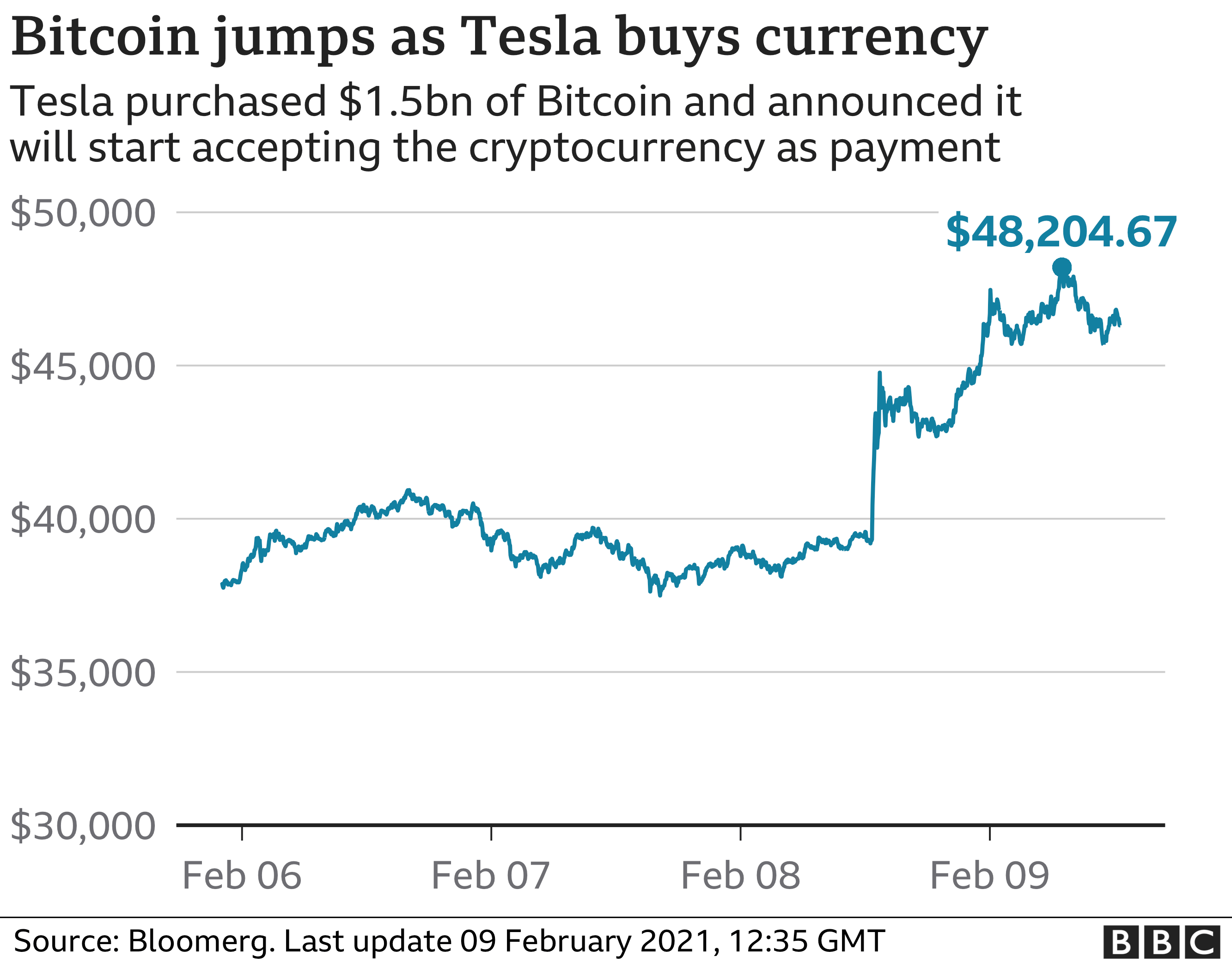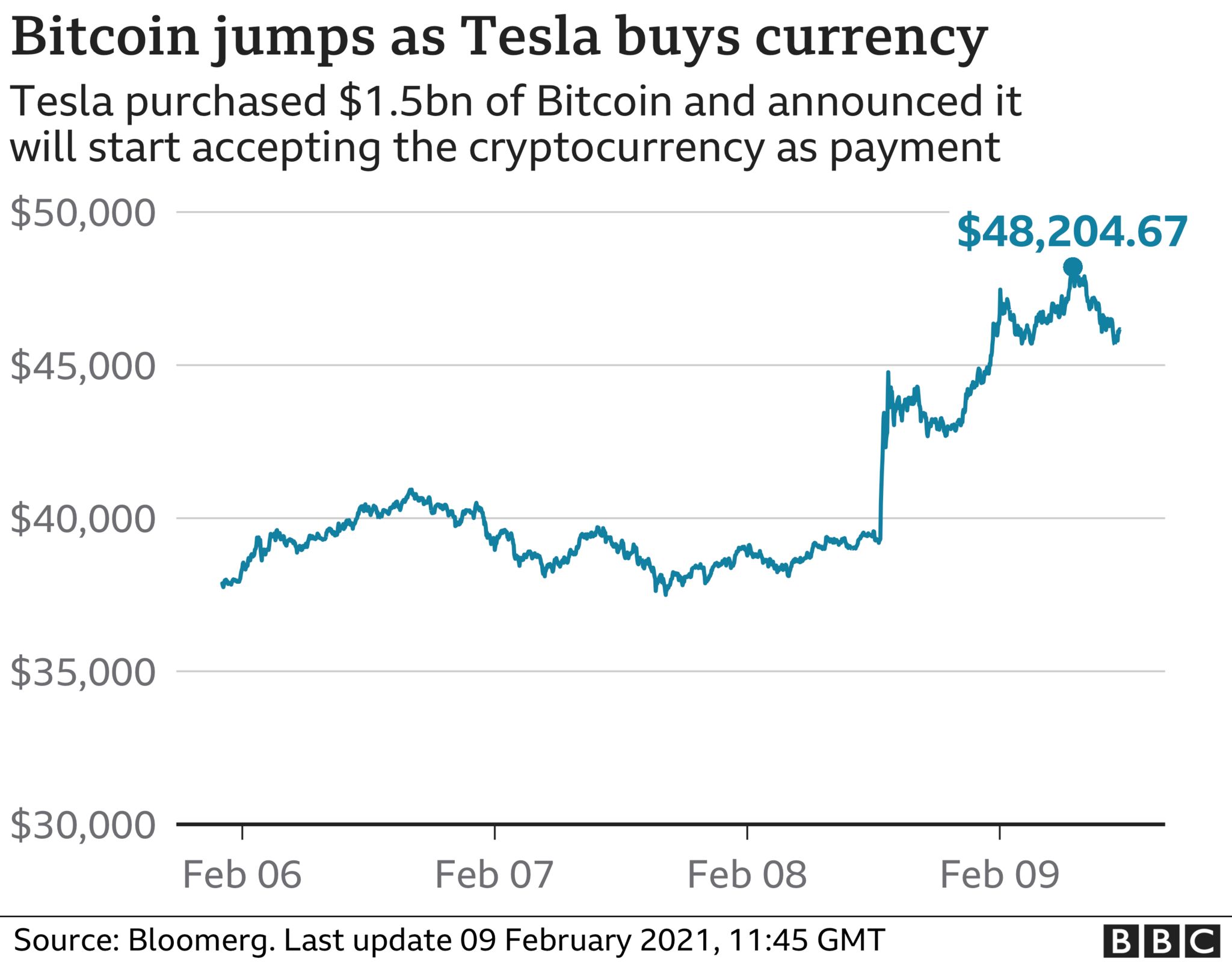

Bitcoin has hit record highs for a second day after Elon Musk’s car company Tesla said it had bought about $1.5bn (£1.1bn) of the cryptocurrency.
Bitcoin rose above $48,000 (£34,820) before falling back, but it remains about 25% higher than a week ago.
Some investors took Tesla’s move as a signal that Bitcoin would become a mainstream financial asset.
However, there was some criticism about a green car firm investing in such an energy intensive currency.

Bitcoin currently uses more energy than Argentina every year, according to analysis from the University of Cambridge.
Production of the cryptocurrency, known as “Bitcoin mining”, needs energy-hungry computer hardware and ever-greater amounts of processing power.
Mike Butcher, an editor at news website Techcrunch, tweeted: “Tesla: Sells carbon credits to buy Bitcoin, which requires as much energy (not always Green energy) as a small country to mine.”

Bitcoin is a form of digital money. This means it doesn’t have a physical form. Instead, units of digital currency are traded over a computer network.
It operates over a global network with thousands upon thousands of nodes – a machine within a network like a computer or some other device – which together process and store transactions.

Explaining its investment on Monday, Tesla said that it wanted to maximise returns on cash lying dormant in the company’s accounts. It also expects to accept payment for its electric cars in Bitcoin in future.
The moves sparked market interest which carried on into Tuesday.
Shares of companies that provide trading platforms for Bitcoin and the technology to mine the cryptocurrency have surged in China, South Korea and Australia, and big computer chip-making firms such as SK Hynix also rose.

The cryptocurrency has already risen in value by 62% this year, on top of a 300% rally in 2020, as investors search for alternative assets at a time when interest rates in many countries are at record lows.
Bitcoin has had some interest from big investment firms, including Blackrock, which recently changed a handful of investment mandates to allow some of its funds to invest in the currency.
However, central banks remain sceptical about the cryptocurrency. In October, Bank of England governor Andrew Bailey cautioned over Bitcoin’s use as a payment method, saying it lacked “intrinsic value” unlike cash or gold.
Some institutional investors are also wary of the price volatility of Bitcoin.
Robert Pavlik, senior portfolio manager at Dakota Wealth, said: “The average institutional investor is shaking their head.
“For these folks who are believers in cryptocurrency, [Tesla’s investment] gives them another layer of support that crypto is the future.”
But Bitcoin scepticism does not mean that central banks and regulators are against digital currencies per se.
In China in particular regulators are starting to embrace issuing their own digital currencies for everyday use. – bbc.com
Sorry. No data so far.

